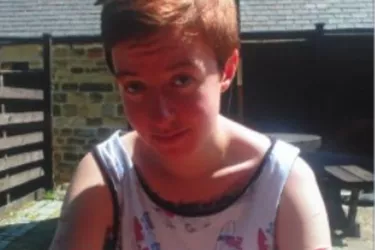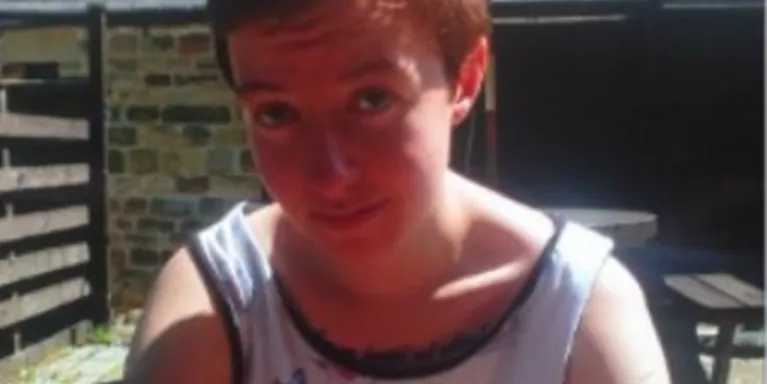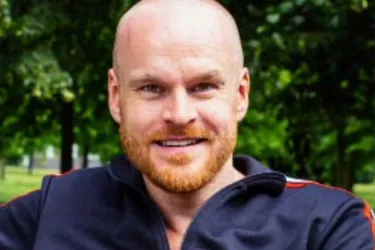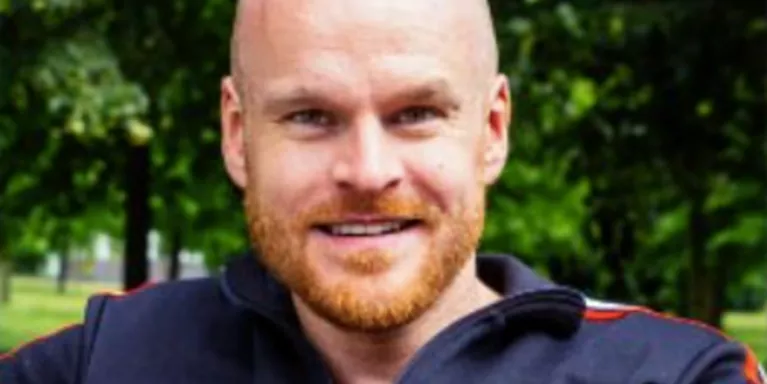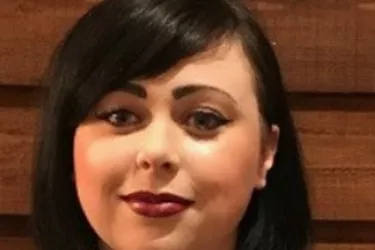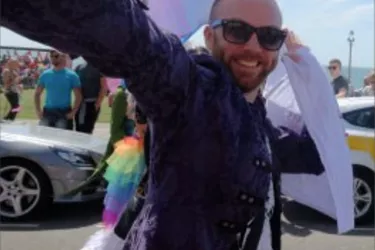He/ She/ They/ It
In the first part of Lilith's blog, they share their experience of gender identity and hearing voices.
My hair was blue, and I was trying out a nose ring (it’s a henna-d brown now and I’m pretty certain my nose has closed up).
I’m 24, and still had no idea how to reconcile myself to having a physical presence – let alone one that was going to be recorded, and for people to watch. I practiced some of the skills I’d learnt through Dialectical Behaviour Therapy, and I pinned a pin badge with the feminist symbol on it in red on my lapel. It was my mothers. I resolved that I would be present, and I would be seen.
It is only recently that I have begun to openly talk about my experience of gender. It began with the acknowledgement that what was going on for me was different from many of my friends who are either not conventionally feminine, tomboys or ‘butch’. For example, talking this through with my girlfriend I realised my experience is very different from hers. By presenting in a way that is not conventionally feminine she is expressing herself. When I do the same, I am trying to reconcile myself to my self – I feel like I am trying to make up for something that is wrong with me.
"Lots of people use labels, such as transgender, agender, or genderqueer, in order to describe something that is actually really complicated about them."
I haven’t put it fully into words yet, and I don’t know if that is out of fear of what those words would mean, or because there are not words to adequately describe my experience.
At the moment, I am trying to practice curiosity and an open dialogue about my gender, and not make any big decisions to name anything - I touch it, taste it gently, see how different stories sound and roll the words around my mouth to explore their nature, and to see where I am silenced. My partner has been working really hard to use gender neutral pronouns for me, and we have started to relax more into the uncertainty.
‘Coming out’ for me doesn’t mean suddenly feeling free to be myself. I am lucky to have around me a group of friends, family and a partner, who accept me as I am, and assimilate any change as bits of me ‘come out’ in little pieces. There is not a clear story or narrative I can point them to, and understanding my experience of gender doesn’t mean having a clear and definite understanding of what it means to be ‘transgender ’. Rather, it means understanding and wanting to know what it is to be me.
"Feeling different can be crippling, especially when you feel that who you are and what you are doesn’t fit with the narrative society writes."
As a result, even writing this blog is difficult because I do not feel I can translate this story into one that is coherent and salient, and familiar. For lots of people different experiences of gender, of hearing voices, of mental illness, go beyond their own experience, imagination and understanding.
Being queer and diagnosed with a mental illness can be difficult as it opens up areas of your life to intervention while silencing others. My gender identity and sexuality are, to me, private and I do not want them problematized or defined by someone else.
When I put on my mother’s pin badge I felt a connection to the Women’s Health Movement of the second half of the twentieth century. The Women’s Health Movement sought to empower women with knowledge about their bodies, and challenged the power of the medical profession to say what was normal about a woman’s body, or what needed intervention or treatment.
This is relevant not only in my experience as a queer person within mental health services, but the themes of empowerment, the value of personal experience, and the challenge to medical knowledge and power relate to my experience of the service user and survivor movement, and the hearing voices movement.
The hearing voices movement said aloud what I had felt – that the voice I heard had a particular and personal significance to me. I still cannot bear to speak aloud the things he has said. These days, though, I am very good at identifying the vulnerability factors that trigger his arrival or amplify his speech. Talking about it, with therapists, and my care coordinator, allowed me to readdress the power imbalance – I could not even face the awful, demeaning and misogynist things he said, I was horrified by them, and by my capacity of my brain to produce them.
I think women in particular are taught to be afraid of anger and violence that may occupy space inside them. I know that in my worst years this pervasive angry violent voice was matched by my own almost emotional catatonia - until breaking point. I could actually see around me the areas where I would put my hurts, my upsets, my anger, my sadness, my disappointments, my joy and my loss, as they accumulated, and I would feel these boundaries come crashing down in crisis and feel all these things at once, with only that terrible shouting voice over the chaos.
By facing the significance of this voice, and owning the actions he compelled me to take, I am learning a new and sustainable way to live, where there is dialogue. And I am trying to create the linguistic space in which to express my experiences outside of the purely medical, to give them value and meaning, and to give me power back. Readdressing power imbalance has become part of my academic work in mental health research led by the people who use services, rather than psychiatrists or doctors.
The future seems positive; my community supervision order ends in August next year, I have not been an inpatient in a psychiatric hospital for over a year (the longest stretch of my adult life), and I am even considering being discharged from community mental health services back to my GP, with whom I have a good relationship.
I am still telling, writing, new and different stories about myself, and practicing being seen. And I am hopeful that I’ll find a set of words to communicate my self, and that others understand.
Watch Lilith's video on hearing voices and gender identity
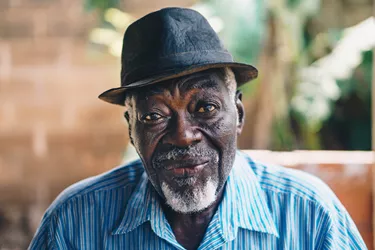

Information and support
When you’re living with a mental health problem, or supporting someone who is, having access to the right information - about a condition, treatment options, or practical issues - is vital. Visit our information pages to find out more.
Share your story with others
Blogs and stories can show that people with mental health problems are cared about, understood and listened to. We can use it to challenge the status quo and change attitudes.










